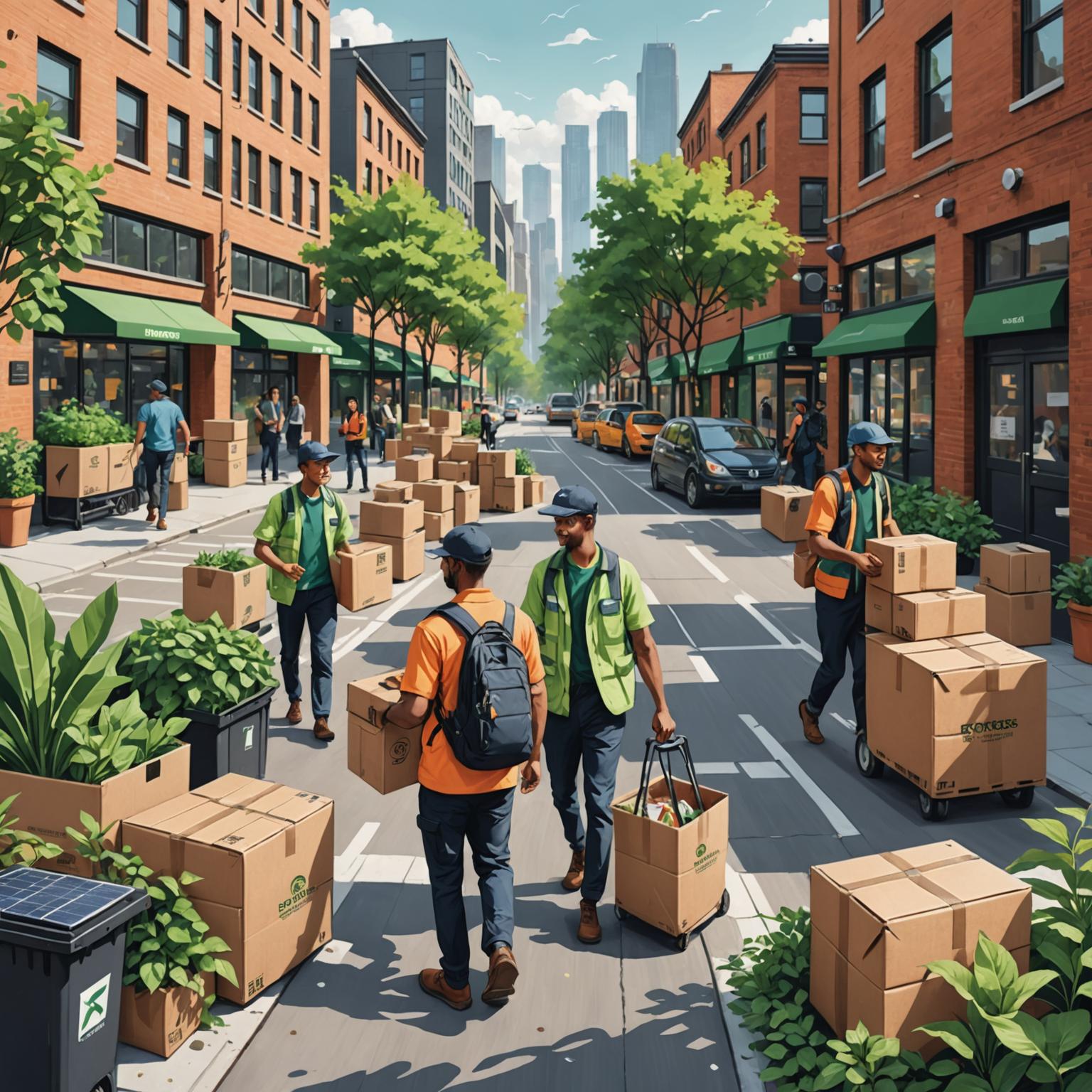The Evolution of Shipping Materials
In the modern age of global commerce and instant gratification, the humble express bag has become a cornerstone of the logistics industry. Every day, millions of these packages traverse the globe, ensuring that goods ordered online arrive safely at our doorsteps. This surge in e-commerce, however, has brought a significant environmental challenge to the forefront: the proliferation of single-use plastic packaging. Traditional poly mailers, while lightweight and durable, contribute massively to landfill waste and ocean pollution. As consumers and corporations alike become more environmentally conscious, the demand for sustainable alternatives is reshaping the future of packaging, pushing innovators to rethink the very materials we use to ship our goods.

Navigating the Environmental Impact of E-commerce Packaging
The convenience of online shopping comes at a high environmental cost. A standard plastic shipping express bag is typically used once and then discarded, beginning a long journey that often ends in a landfill or, worse, in our oceans. These plastics can take hundreds of years to decompose, breaking down into harmful microplastics that contaminate ecosystems and enter the food chain. The production of virgin plastics is also an energy-intensive process that relies on fossil fuels, further contributing to carbon emissions. Recognizing this unsustainable cycle, forward-thinking companies are now actively seeking packaging solutions that not only reduce waste but also contribute positively to the planet. The challenge is to find materials that are just as effective and affordable as traditional plastics but come with a dramatically smaller environmental footprint.
A Revolutionary Step: Learning from Sustainable Innovations
Inspiration for the future of sustainable packaging can be found in remarkable innovations from adjacent industries. A prime example of this is a groundbreaking product named Pollastic, a trash bag crafted meticulously from 100% ocean-bound plastic. This isn’t just recycled plastic; it’s plastic that was intercepted from coastal communities and waterways before it had a chance to pollute the ocean. This initiative turns a direct environmental threat into a high-quality, functional product. The sleek, black design of these bags proudly carries the message, “I’m a real trash bag!”—a bold statement that reclaims the term “trash” and transforms it into a symbol of pride in environmental stewardship. This concept demonstrates a powerful model: taking harmful waste and converting it into a new, valuable resource, a principle that could revolutionize the packaging industry and the very nature of a shipping express bag.
The Future of the Express Delivery Bag
Imagine applying this same innovative thinking to the logistics world. The future of the express delivery bag could be one where every package sent is a testament to a brand’s commitment to sustainability. By using materials like those in Pollastic, derived from ocean-bound plastics, a company’s packaging becomes more than just a container; it becomes a story. It tells the consumer that the brand is actively participating in cleaning our planet. This approach offers immense opportunities for branding. The customizable nature, where a company can place “YOUR BRANDING HERE,” allows businesses to directly showcase their environmental credentials on every single shipment. An express delivery bag made from upcycled ocean waste would not only protect its contents but also send a powerful message of corporate responsibility, resonating deeply with today’s eco-aware consumer base and creating a tangible connection to a positive environmental impact.
Beyond the Bag: Embracing a Circular Economy
The shift towards using materials like ocean-bound plastic represents a move towards a true circular economy. This economic model is based on the principles of designing out waste and pollution, keeping products and materials in use, and regenerating natural systems. Instead of the linear “take-make-dispose” model, a circular approach creates a closed loop where resources are continually reused and repurposed. The Pollastic model does more than just address environmental issues; it also has a profound social dimension. By sourcing plastic from at-risk coastal regions, it helps to mitigate poverty by providing economic opportunities to local communities involved in the collection process. This holistic approach, where an everyday item like an express bag can be part of a system that cleans oceans and supports livelihoods, is the pinnacle of responsible innovation. It shows that commercial products can be a force for good, creating value that extends far beyond their primary function.
Pioneering a Greener Path in Logistics
In conclusion, the path to a sustainable future for the logistics and e-commerce industries is not only necessary but also filled with incredible opportunities. The environmental burden of traditional packaging is no longer acceptable, and the demand for change is undeniable. Innovations like the creation of products from 100% ocean-bound plastic provide a clear and inspiring blueprint for what is possible. They prove that we can create materials that are functional, stylish, and fundamentally restorative to our planet. For businesses, adopting these next-generation materials for their packaging is a chance to lead, to differentiate their brand, and to build a deeper, more meaningful relationship with their customers. The future of packaging is one of purpose, where every shipment can contribute to a cleaner, healthier world.

